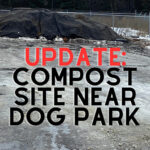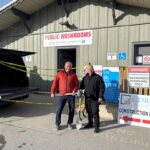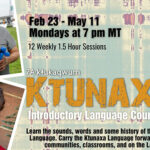Home »

NDP abandoning rural B.C.: Bennett
Kootenay East MLA Bill Bennett says the B.C. NDP is opposing a bill that protects the existing number of northern and rural electoral districts and ensures British Columbians are not required to accept any more than the 85 seats currently in the B.C. Legislature.

“In last year’s election, the B.C. NDP abandoned rural and northern B.C., with Adrian Dix not even bothering to travel north of Prince George,” said Bennett, Minister of Energy and Mines and Minister of Core Review. “The NDP chose to focus on urban ridings and now, once again, they are choosing to gain favour in the Lower Mainland and Victoria at the expense of our small resource towns and cities.”
Amendments to the Electoral Boundaries Commission Act, 2014, currently before the Legislature, require that no reductions in electoral districts can occur in B.C.’s North, Cariboo-Thompson and Columbia-Kootenay regions.
During second-reading debate that took place this week, NDP MLAs unanimously spoke against the proposed bill. All B.C. Liberal MLAs, rural and urban, spoke strongly in favour of the legislation.
Rural NDP MLAs Norm Macdonald, Katrine Conroy, Michelle Mungall, Doug Donaldson and Robin Austin were also uniform in their opposition to the bill, placing the interests of their urban colleagues ahead of the needs of their constituents, stated a March 4 press release.
During debate, Columbia River-Revelstoke MLA Norm Macdonald claimed that, “The bill – let’s be clear — is about the government interfering in the work of the election boundary commission in a way that I think it’s fair to say we know is likely unconstitutional.”
Macdonald is incorrect, the Liberal government press release states.
“If the bill passes and becomes law, the Electoral Boundaries Commission will continue to have the ability to recommend changes to the boundaries of all electoral districts, but it will be subject to a clear direction to preserve the existing number of electoral districts in northern and rural regions,” it outlines.
Macdonald’s position is also a shift from what he said in 2007, the release continues.
“At that time, the Electoral Boundaries Commission proposed adding urban ridings at the expense of eliminating three ridings in B.C.’s Interior. Calling it a “dramatic change,” Macdonald was quoted in the Aug. 22, 2007 edition of the Revelstoke Times-Review as saying, “Everyone recognizes there have been population shifts across the province. But losing rural representation? That’s a concern.”
Another NDP MLA, Nelson-Creston’s Michelle Mungall, stated that one reason why she opposes the bill is due to the results of last year’s general election. Mungall seems to have forgotten that Nelson-Creston is one of the ridings being protected under the proposed legislation, the release suggests.
“The majority of the 17 ridings, which they have singled out, (the B.C. Liberals) presently hold,” Mungall said. “Those ridings would have one-and-a-half times the votes of the other ridings in British Columbia – one-and-a-half. The votes in those ridings would be weighted one-and-a-half times more than votes in other ridings.”
Bennett said the B.C. Liberals are standing up for people who live in the north and in rural B.C.
“I’ve always been firm in standing up for the interests of the Kootenays. I, along with my B.C. Liberal colleagues, will not abandon regions that are at risk of losing elected representation in our provincial legislature, and diminish the democratic voices of the people from the north and rural B.C.,” added Bennett.

Macdonald explained his opposition to Electoral Boundaries Commission Act, 2014, in a letter to the editor published March 3 in e-KNOW.
“I spoke strongly, and forcefully against Bill 2, The Electoral Boundaries Commission Amendment Act, 2014, because I am not going to vote in favour of legislation that I believe will not stand up to a constitutional challenge. This legislation, while it claims to protect rural voters, interferes with the independent work of the Electoral Boundaries Commission, the body that decides where the borders of the constituencies should be,” he stated.
“Does this legislation provide a benefit to me personally? Absolutely,” Macdonald wrote, adding, “Would I be in a better position politically if I could guarantee that there would be no changes to the boundaries of Columbia River – Revelstoke? Without a doubt. And this is precisely why I, as an elected politician, should have no role in deciding where the boundaries are placed.”
e-KNOW







